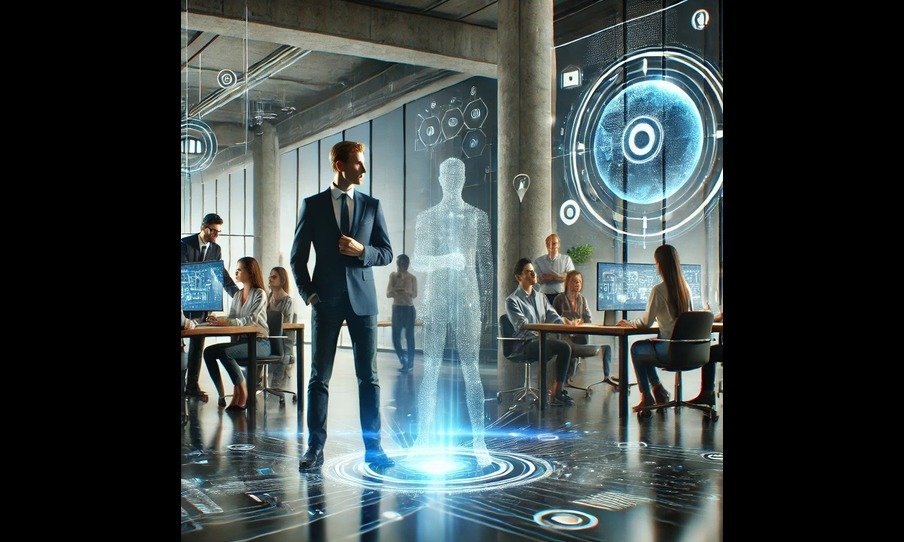The CEO’s View on Work’s Future

Rapid technological advancements, changing employee expectations, and global disruptions are all contributing to the workplace’s unprecedented evolution. The way we work now is very different from ten years ago, from working remotely to integrating artificial intelligence (AI). In order to adjust to this new reality and ensure sustainability and growth in a world empowered by technology, CEOs from a variety of industries are rethinking business strategies.
Hybrid Work Models’ Ascent
The transition to hybrid work models has been one of the biggest changes in recent years. The pandemic hastened the adoption of remote work, and many businesses now support flexible work arrangements even as offices reopen. CEOs understand that workers value independence and a healthy work-life balance, which boosts output and job satisfaction. Remote and in-office collaboration will probably coexist in the workplace of the future, encouraging creativity while preserving operational effectiveness.
Technology’s Contribution to Workplace Transformation
AI, automation, and data analytics are at the forefront of the technological revolution that is changing the workplace. To improve decision-making and streamline operations, progressive CEOs are spending money on digital transformation. Businesses can automate tedious tasks with the use of AI-powered solutions, freeing up staff members to concentrate on strategic and innovative projects. Businesses can also forecast market trends, maximize resources, and enhance customer experiences with data-driven insights.
The Changing Workforce and Upskilling
CEOs stress the value of ongoing education and skill development as automation and artificial intelligence reshape job roles. Employee training is of utmost importance due to the increasing demand for specialized skills and digital literacy. To close skill gaps and keep their workforce competitive in a changing labor market, organizations are putting reskilling programs into place. In addition to keeping talent, businesses that invest in employee development also promote an innovative culture.
Workplace Culture and the Welfare of Employees
Beyond flexibility and technology, CEOs continue to place a high priority on workplace culture. Employee engagement and overall business performance are improved in a supportive workplace that places a high priority on diversity, equity, and inclusion (DEI). Additionally, leaders are recognizing the value of mental health and putting wellness initiatives into place to promote workers’ wellbeing. Businesses will prioritize emotional intelligence, empathy, and purpose-driven leadership more in the future.
Leadership’s Future
CEOs are becoming more flexible, compassionate leaders who support inclusivity and innovation in place of more traditional authority figures. CEOs who are prepared for the future know that overcoming uncertainty requires resilience and agility. To promote long-term success, they are encouraging open communication, welcoming change, and creating a collaborative culture.
Read More Articles: Click Here
